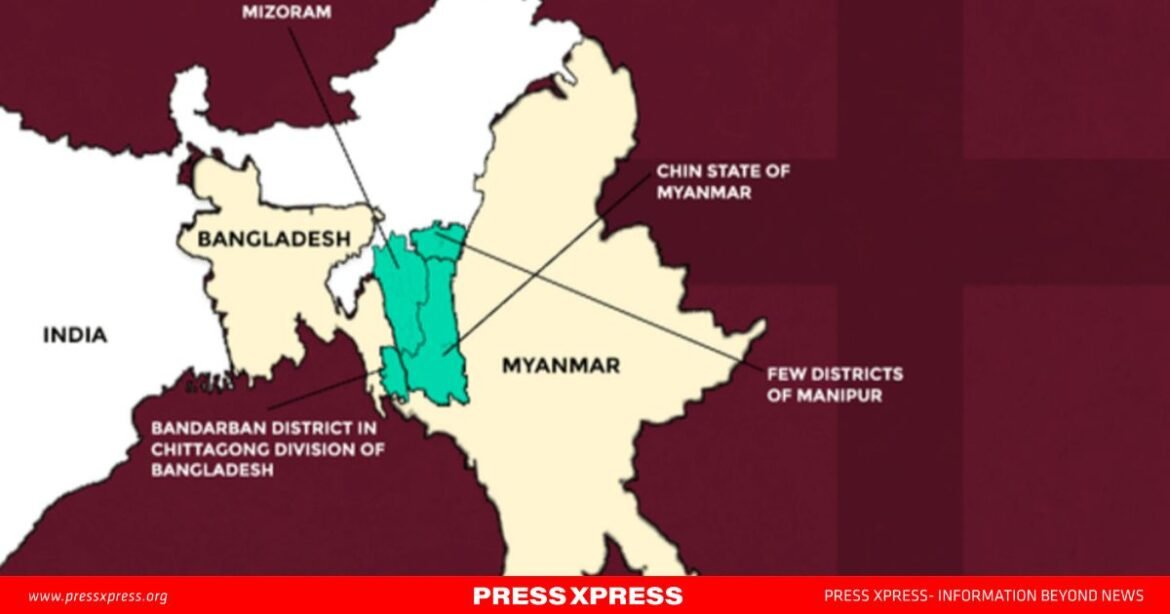In a move that has stirred fierce debate across Bangladesh, the Yunus regime, which took power through controversial means in 2024, has entered into a seemingly innocuous agreement with the United Nations High Commission for Human Rights (OHCHR). Despite vehement opposition from Islamist parties such as Jamaat-e-Islami, Hefazat-e-Islam, and Islami Andolan Bangladesh, the UN mission has been launched in Bangladesh, raising questions about the true nature of this collaboration and its implications for the nation’s future.
At the heart of this agreement lies a disturbing trend—one that many political observers fear is a covert plan to establish a Christian state in South Asia, drawing borders that include parts of Bangladesh, Myanmar, and India. Behind the regime’s public assurances to the Islamist factions lies a strategic push to impose a Western ideological agenda on a predominantly Muslim country, threatening to undermine its religious and cultural values.
The Yunus regime’s backing of the proportional representation (PR) system, supported by Jamaat-e-Islami and other Islamic groups, is part of this larger strategy. With the hope of securing a significant number of parliamentary seats in the upcoming elections, the regime is maneuvering to ensure that religious political groups dominate the legislature, all while secretly advancing the agenda of a Western-backed UN mission.
The recent victories by Jamaat’s student wing, Islami Chhatra Shibir, in the Dhaka University and Jahangirnagar University elections have fueled the belief that the path to national power is now within their reach. This has only intensified the fear that the regime, in line with US-led efforts, is positioning itself to fulfill a much broader, more sinister goal: the establishment of a state that accommodates foreign cultural hegemony.
A Plan for a “Christian State”
Sources suggest that the OHCHR mission, once stationed in East Timor, is now being used as a tool to promote a hidden agenda in Bangladesh—one that mirrors the efforts to transform East Timor into a Christian-majority state. It is widely feared that this mission is working with the Yunus regime to advance a similar project on Bangladesh’s borders, focusing on the Bay of Bengal and the Myanmar border areas.
For years, the West, through the UN and its associated bodies, has pushed for a cultural transformation in conservative countries. The attempt to establish homosexuality as a “universal human right” is a key part of this agenda. Muhammad Yunus, the Nobel laureate, and his daughter Monica have openly supported LGBT rights, with their involvement in the US-based organization Song for Hope, which promotes the acceptance of homosexuality. Such stances are now creeping into Bangladesh’s social and political fabric, thanks to Yunus’ influence.
Prominent rights activists with strong ties to the US, such as Sara Hossain and Sharmeen Murshid, are also advocating for the expansion of the OHCHR’s activities in Bangladesh. Their efforts are part of a broader campaign to create a cultural and political environment where Western values, including LGBTQ+ rights, take precedence over Bangladesh’s established norms.
Cultural Invasion: A Trojan Horse for Western Hegemony
Through the establishment of the OHCHR office, the Yunus regime is poised to influence Bangladesh’s laws, educational system, and even religious institutions. Proponents of this agenda are pushing for the inclusion of LGBTQ+ issues in school curricula, positioning homosexuality as a symbol of progress and equality. Such moves threaten to erode Bangladesh’s cultural fabric, potentially leading to the collapse of traditional family structures and the rise of social anarchy.
Yunus and his supporters have opened the door to what can only be described as cultural colonialism. By approving the OHCHR agreement, the Yunus regime has effectively placed Bangladesh on a path towards becoming a “Western cultural laboratory”—a place where values contrary to its Islamic heritage are normalized and institutionalized.
A National Betrayal
But who is Muhammad Yunus? Once celebrated as the founder of Grameen Bank and a Nobel Peace Prize laureate, Yunus has long enjoyed a reputation as a social reformer. However, his true intentions appear increasingly aligned with foreign interests. He has positioned himself as a tool of Western powers, willing to sell out Bangladesh’s heritage, culture, and religion for personal and political gain. His personal endorsement of his daughter’s homosexuality further casts a shadow on his motivations. His vision for Bangladesh involves leading the country down a dangerous path, one that threatens to dilute the nation’s core values.
The approval of the agreement with the OHCHR is nothing short of a national betrayal. It is a pact that could forever alter the character of Bangladesh, allowing foreign ideologies to take root in a way that will irreversibly change the nation’s identity.
The UN’s Double Standards
What is most troubling, however, is the glaring double standard exhibited by the UN. While it actively promotes LGBTQ+ rights in Muslim-majority countries like Bangladesh, it remains eerily silent on the growing Islamophobia in the West. Countries like France ban the hijab, and Germany’s mosques face increasing attacks—yet the UN remains complicit, turning a blind eye to these injustices while pushing for cultural transformation in countries like Bangladesh.
A Call to Action
If this agreement is not rescinded, Bangladesh’s future generations will inherit a world vastly different from the one their forebears knew. The imposition of Western values will threaten the very foundation of the country, undermining its religious, cultural, and social structures. The erosion of the family unit and the spread of foreign ideologies will only lead to further disarray in society.
Bangladesh stands at a crossroads. It is a national duty to reject the cultural colonization that Muhammad Yunus and his supporters are pushing upon the nation. The agreement with the OHCHR must be cancelled, and the foreign influence that seeks to weaken the nation’s core values must be stopped. Failure to act now will result in a future where Bangladesh’s cultural and religious identity is unrecognizable.
Our future generations will never forgive us if we allow this dark agenda to unfold unchecked. The time to act is now.


